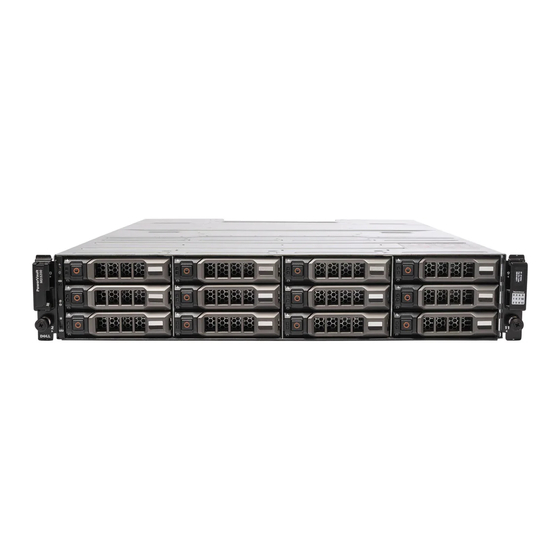Dell PowerVault MD32xxi Configuration Guide for VMware ESX4.1 Server Software
Introduction
The Dell™ PowerVault™ MD32XXi storage solution consists of either a standard or high availability configuration.
The standard (simplex) configuration has a single controller with four 1GbE ports. It can be deployed to support up
to 16 hosts non-redundantly. The high availability (duplex) configuration has dual controllers with four 1GbE ports
per controller for a total of eight 1GbE ports. The dual controller option can connect up to 32 fully redundant
hosts. This document provides instructions to setup the MD32XXi iSCSI storage solution for use with VMware®
ESX4.1 Server™ software.
Provisioning of storage on servers in a VM environment is a multi-step process starting with definition of the server
names for host access. The iSCSI connection is then established from the storage subsystem. After which,
detection and configuration are established as a two-way link with the associated ESX server(s), completing the
iSCSI communication subsystem. The final step allocates the detected storage to the individual virtual machines
(VMs), where all or part of the configured storage can be assigned to individual VMs.
VMware® vSphere4™ offers many new and advanced enhancements over the iSCSI software initiator in
conjunction with iSCSI SAN connectivity. Many of these new features require advanced configuration in order to
work properly. Administrators who are familiar with ESX 3.5 iSCSI SAN configuration may find that their current
configuration steps are not sufficient to enable all of the advanced features offered in vSphere4.
This whitepaper addresses some of the new features in vSphere4 as well as showing two examples of how to
connect a vSphere4 environment to a Dell™ PowerVault™ iSCSI SAN.
These steps are documented in
but this whitepaper goes into depth on configuration steps for connecting to a PowerVault™ SAN.
This whitepaper also covers steps for utilizing the software iSCSI initiator inside the ESX server. Users connecting
their vSphere4 environment using just iSCSI HBAs or users wishing to only assign a single iSCSI NIC with no Jumbo
Frame support will not follow these steps and instead configure their environment as normal. Users who wish to
only enable Jumbo Frame support for their environment will want to take note of steps 1 and 2 but only create a
single VMkernel port through the vCenter GUI after that.
Implementing ESX4.1 on the MD32xxi Storage Array
New Features in vSphere4 Software iSCSI Initiator
VMware vSphere4 ESX4.1 has new support for various new advanced capabilities that were not found in
ESX 3.5. This whitepaper will cover the new features in the iSCSI software initiator as well as how to
configure them to connect to the SAN.
iSCSI Software Initiator – With ESX4.1, the iSCSI software initiator was re-written from the ground up for
better performance and functionality.
Jumbo Frames – With ESX 4.1 and vSphere4, Jumbo Frames can be enabled on the iSCSI software
initiator. Jumbo Frame support allows for larger packets to be transferred between the ESX4.1 servers and
the SAN for increased efficiency and performance. Jumbo Frame Support can be enabled via the CLI.
VMware's iSCSI SAN Configuration
Guide which can be found on VMware's website
Page 3

